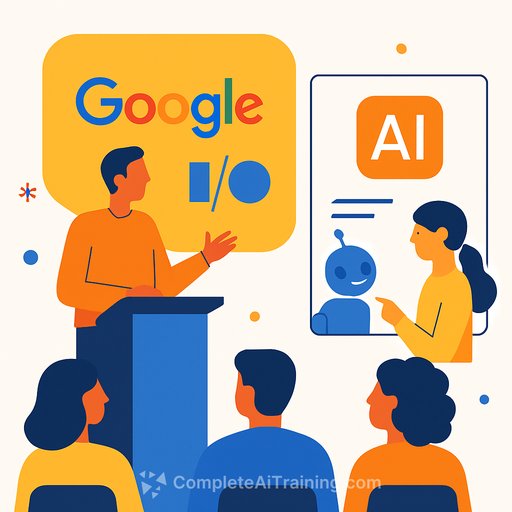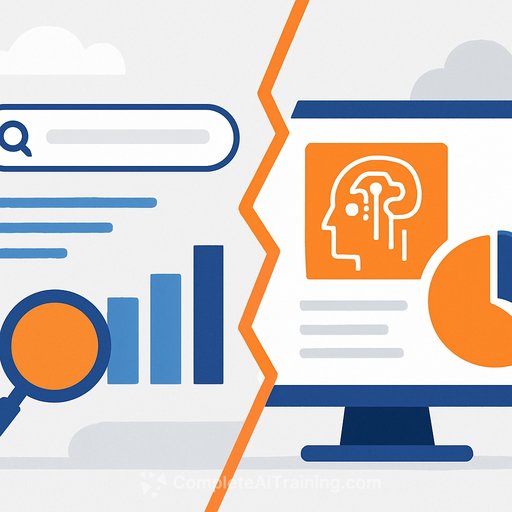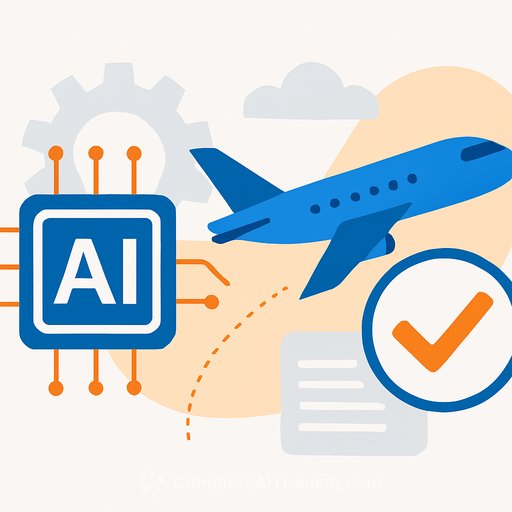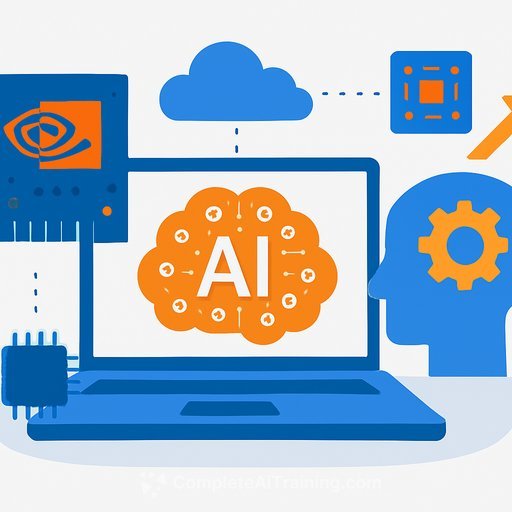Google I/O 2025: From Research to Reality
Google continues to push the boundaries of AI with its latest Gemini models, delivering practical advances that impact developers and IT professionals alike. The focus is clear: making AI more helpful, accessible, and integrated into everyday workflows.
Relentless Model Progress
Gemini's evolution is marked by significant leaps in performance. Elo scores, which gauge model strength, have jumped over 300 points since the first-generation Gemini Pro. The current Gemini 2.5 Pro dominates the LMArena leaderboard across all categories.
This progress is powered by Google's seventh-generation TPU, Ironwood, built specifically for inferential AI workloads at scale. It offers 10 times the performance of its predecessor, delivering an astonishing 42.5 exaflops of compute per pod. Such infrastructure advances mean faster, more cost-effective models for developers.
The Expanding Reach of AI
AI adoption is accelerating globally. Monthly token processing across Google’s products and APIs surged from 9.7 trillion last year to over 480 trillion today—a 50-fold increase. The developer community is growing fast, with over 7 million building on Gemini, a fivefold jump. Gemini usage on Vertex AI has increased 40 times, while the Gemini app boasts over 400 million monthly active users.
Notably, user engagement with the 2.5 series models is strong, with a 45% increase in usage among 2.5 Pro users within the Gemini app.
Turning Research Into Real-World Tools
Project Starline → Google Beam + Speech Translation
Following the introduction of Project Starline, Google now launches Google Beam, an AI-first video communication platform. Using six cameras and AI, Beam converts 2D video streams into a realistic 3D experience on a lightfield display, offering near-perfect millimeter-precision head tracking at 60 frames per second.
This creates more natural, immersive conversations. Early devices will be available through HP later this year. Meanwhile, Google Meet gains real-time speech translation that matches speaker voice and tone, initially rolling out English-Spanish translations for Workspace AI Pro and Ultra subscribers with more languages coming soon.
Project Astra → Gemini Live
Project Astra enhances Gemini Live by adding camera and screen-sharing features. Users leverage this for tasks like interview prep and training. Available now on Android and rolling out on iOS, these capabilities will also integrate with Search, enriching interactive AI assistance.
Project Mariner → Agent Mode
Project Mariner introduces intelligent agents that combine AI with tool access, enabling them to perform web-based tasks under user control. Its “teach and repeat” system lets agents learn new tasks from a single demonstration.
Developers can access Mariner’s computer-use features through the Gemini API. Early adopters like Automation Anywhere and UiPath are already building with it. Agent Mode in the Gemini app can, for example, help apartment hunters filter listings, interact with real estate sites like Zillow, and even schedule tours—all autonomously.
This agent ecosystem is expanding with compatibility for protocols like the Model Context Protocol (MCP), enabling agents to communicate and access external services. Upcoming integrations will bring these agent capabilities to Chrome, Search, and more.
The Strength of Personalization
Personal context is shaping how AI serves users. With permission, Gemini models can access relevant data from Google apps privately and transparently. For example, Personalized Smart Replies in Gmail will soon generate responses based on your past emails and documents, matching your tone and style.
This feature will launch for subscribers later this year and promises to enhance productivity across Search, Gemini, and other services.
Workspace with Gemini: Enhancing Productivity
AI Mode in Search
Since its launch, AI Overviews in Search have reached 1.5 billion users globally, increasing satisfaction and frequency of searches. Now, Google introduces AI Mode, a reimagined Search experience that supports longer, more complex queries and follow-ups, all within a dedicated tab.
AI Mode is rolling out in the U.S. with Gemini 2.5 powering responses that combine speed with accuracy, setting a new standard for AI-assisted search.
Gemini 2.5 Advancements
The Gemini 2.5 Flash model is popular for its speed and low cost while improving on key benchmarks like reasoning and multimodality. The 2.5 Pro version is enhanced with “Deep Think,” a reasoning mode that applies parallel thinking techniques for better problem solving.
The Evolving Gemini App
Gemini’s Deep Research is becoming more personal and functional. Users can upload files and soon connect to Google Drive and Gmail to generate tailored research reports. Integration with Canvas allows creating infographics, quizzes, and podcasts in multiple languages with a single click.
Vibe coding through Canvas lets users build functional apps by simply chatting with Gemini. Additionally, Gemini Live's camera and screen sharing are now freely available on iOS and Android, soon connecting with other Google apps for seamless assistance.
Generative Media Model Advances
Google introduces Veo 3, a new video model with native audio generation, and Imagen 4, its latest image generation model. Both are accessible via the Gemini app, opening new creative possibilities.
For filmmakers, there’s Flow — a tool that extends short video clips into cinematic scenes, helping to streamline content creation.
Looking Ahead
AI’s potential to improve lives remains vast. Ongoing research in robotics, quantum computing, and autonomous vehicles like Waymo underscores this promise. An example is the increasing popularity of Waymo rides in San Francisco, impressing even those familiar with the technology.
For IT and development professionals, these advances translate into new tools, APIs, and platforms that can boost productivity, enhance applications, and create innovative user experiences.
For those interested in deepening their AI expertise, exploring targeted training can be valuable. Platforms like Complete AI Training offer courses tailored to the evolving AI landscape.
Your membership also unlocks:




